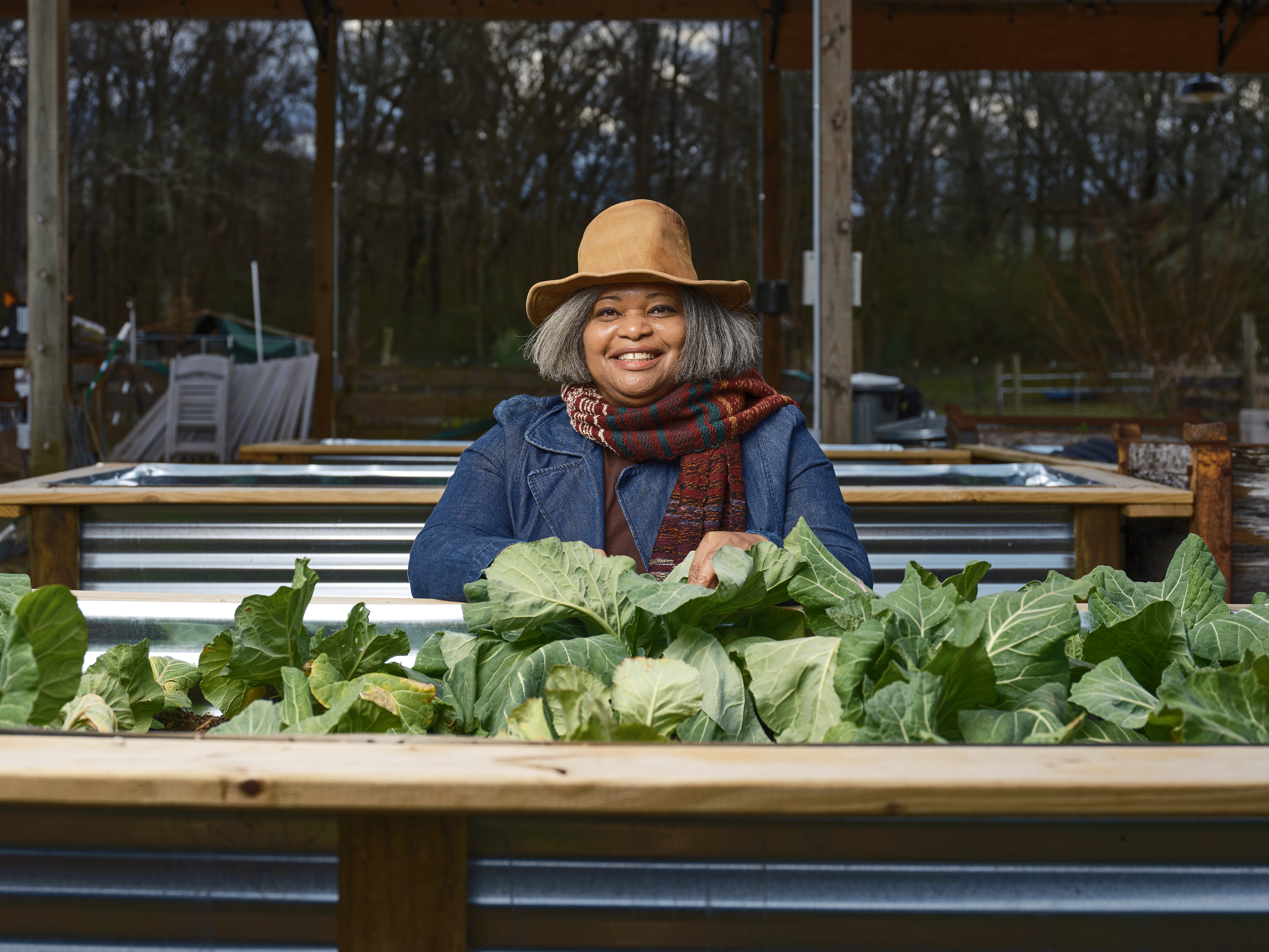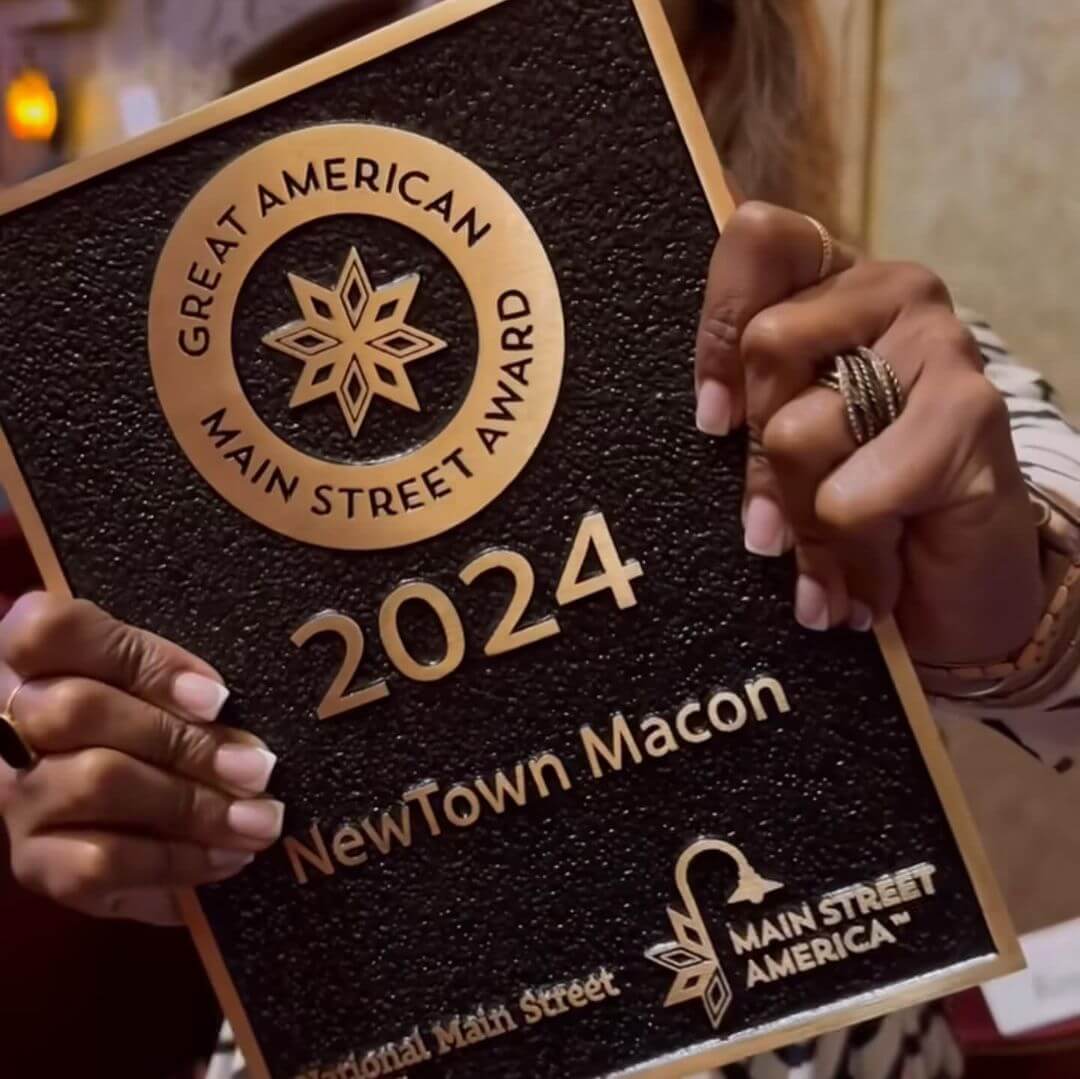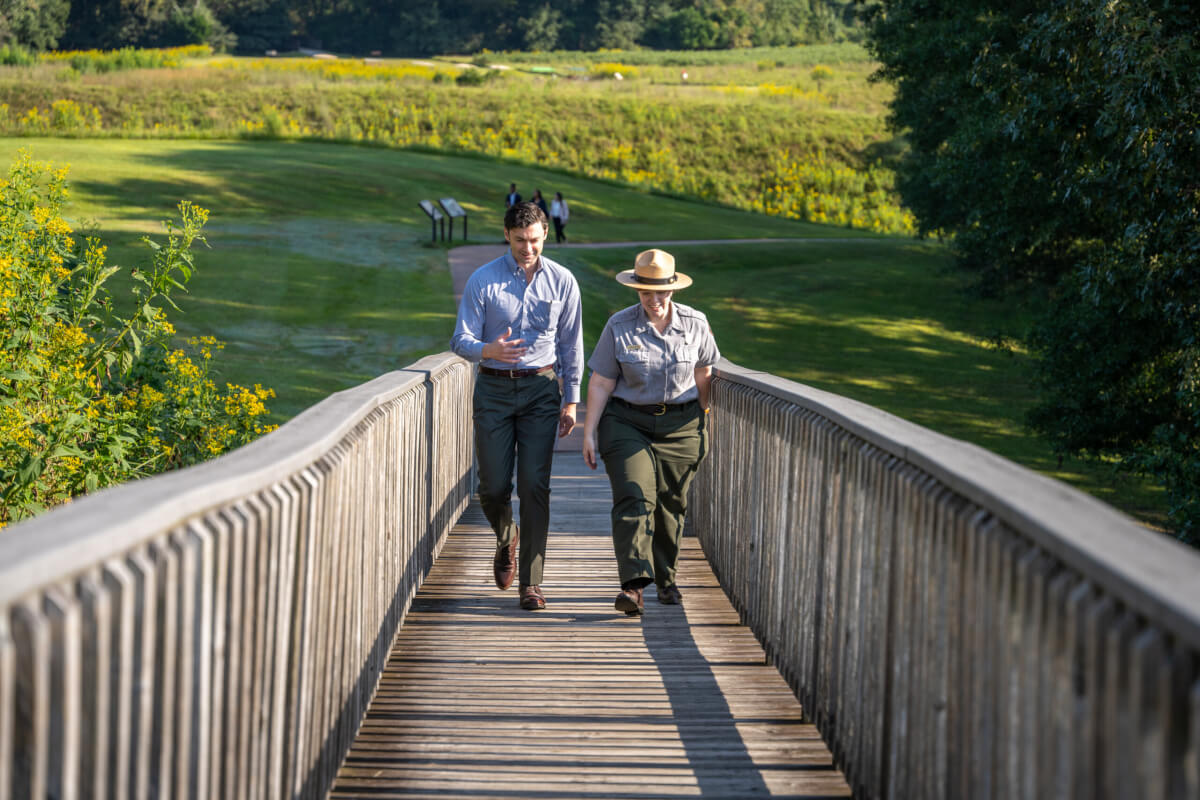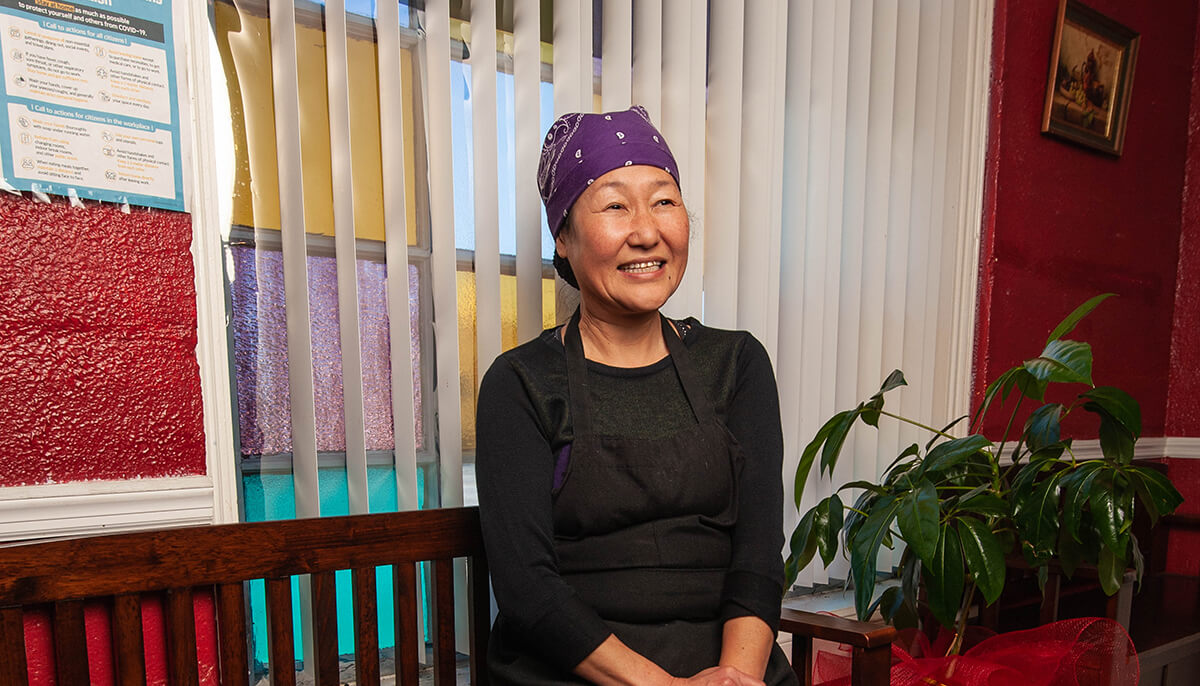
Heroes among us: Dr. Veronica L. Womack
Photo by Matt Odom | Interviewed by Julia Morrison
We caught up with Dr. Veronica Womack at Comfort Farms in Milledgeville. She’s a political science professor and the executive director of the Rural Studies Institute (RSI) at Georgia College & State University and the founder of the Black Farmer’s Network (BFN). She combines research with storytelling to shine a light on policies that will help the rural South, particularly the Black Belt region.
Dr. Womack, what can you tell us about your story and why you do the work you do?
I grew up in a rural Alabama community. Many people were landowners who grew their own food. My grandparents were very good stewards of the land, and so they always had fresh fruits, fresh vegetables, chickens, fresh eggs, and all of that. I saw the beauty in that kind of life. But as I went to school and started work, I encountered a lot of people who only knew stereotypes about rural people and how we lived. I wanted to change that story. I wanted to have some authentic voice to the narrative.
For folks who aren’t familiar with the term “the Black Belt,” what’s the key takeaway?
The Black Belt region is a crescent-shaped swath of land that extends from eastern Texas to Virginia’s eastern shore. Historically, it was an agriculturally based society fueled by Black enslaved labor. Then we moved into sharecropping; we moved into low-skill, low-wage manufacturing labor. But we also have to think about the Black Belt in terms of the foodways that it created, the beautiful quilts that the women have crafted over the years, the music that came out of this place, the community. Often, the Black Belt is only defined by its negatives. That’s not the whole story of the Black Belt. The resilience of the people, the history, and the culture is something that I want to hear more about. I see my contribution as highlighting that distinct culture that we have. That’s what the Black Belt is to me. It’s agriculture, it’s music, it’s food.
Through BFN, you’ve been drawing attention to Black farmers. Can you give our readers some examples of how digital presence and resources ensure the success and longevity of Black Belt farmers?
For a long time, many of these farmers lived in places without broadband internet. Something that I noticed during my research was a lack of African American farmers’ presence online, especially from small farmers, family farmers. So, I wanted to tell the story because that’s really my community’s story. Many of the stories published about Black farmers have been about their struggle – and that is very important, that we tell the story of their struggles – but I also wanted to add to that. I wanted to tell a more extended journey: the story of the multi-generational farms, the story of the foodways that came from their farming. So, for example, the latest story on Black Farmers Network is about a fifth-generation farm in Southeast Georgia. The Berry family. The Berry family, like so many families and so many other Black farmers, they’re doing extraordinary things.
How can people support this work?
Well, I would like for them to support the farmers. If you see them at the farmers market, support them. The greatest way to support this work is to support the subjects. You can also learn more about the region and its distinctiveness.
Why was it crucial to create the Rural Studies Institute (RSI) in Central Georgia?
I’m so honored and proud to be connected with Georgia College and the founding of this institute. RSI focuses on four key factors impacting rural Georgia communities: education, healthcare, the environment, and economic opportunity. Most people associate rural with agriculture, and that’s a true connection. But rural expands beyond just ag. From my perspective, you have two Georgias: you have your urban areas – your Atlantas, your Augustas, your Columbuses; those places are becoming regional innovation hubs. That’s the goal of those urban places. But then, you have the rest of Georgia. How do we prepare that part of the state to participate in our new global economy? How do we equip the rest of Georgia to play a key role in the continuation of the state’s business successes? How do we make sure that we have opportunities everywhere?
How are you accomplishing that mission?
This institute was launched in January of 2020, right before a global pandemic. The first year, most of our work was online. We had webinars on each of RSI’s four key topics. As a result, we had over a thousand people participate in those webinars about rural communities. After that, we’ve written grants around rural communities, and we’ve done a lot of partnerships. At this moment, much of our work is centered around agriculture and climate. We’re working with the Drawdown Georgia, which is Georgia’s organized effort to reach the 2030 UN sustainability goals. Georgia Tech is leading that initiative.
While these rural regions do produce the nation’s food, they statistically have less access to healthy foods on average. You grew up around healthy food, having immediate access to your family’s produce. What are the barriers now to nutrition in rural areas, and how can local food systems adapt to keep nutrition in the community?
Growing up, most people had gardens. In many of these communities, the food was on hand. As the economy changed and people had to leave their land to go and work, then it became not only that you weren’t able to grow your food, but now, you’ve got to pay for it. Access to food is twofold. Is the food available? If you’re living in communities that don’t have grocery stores, which a lot of these communities do not, that is an access issue. But even if you have a grocery store, can you afford it? When COVID happened, a lot of people who didn’t have those access issues encountered them for the first time. Who better to help us deal with local food supply issues than our local farmers? When we think about access to food, we should explore how we can build a local food system that encompasses the farmers within our community. We support them, and that support is reciprocated by providing us with fresh fruits and vegetables and foods that we can use. As we continue to think about climate issues, the environment, and transportation, studies have shown that many pollution issues can be linked to various modes of transportation. Well, supporting local farmers assists with that. Because the food is right there in your community, there’s not a long transport footprint. So, local food systems make sense. Typically, your local farmer will buy things locally, too, so the money you spend will stay in your community.
Since RSI has emerged, what challenges does the organization face, and how can people support that work?
Part of the challenge is making sure that people are aware of why a public liberal arts college would have a rural studies institute. It’s classic liberal arts, and American agrarian tradition is the center, core, and foundation of the country. It’s the same reason why Yale University has an agrarian studies program, right? The traditions of agrarianism are linked to democracy. All of the philosophy of democracy and self-governance – all of that comes from agrarian tradition. People can support the RSI through efforts that amplify rural communities and through supporting our education and outreach efforts, and through collaboration and partnerships. We are always open to them.
If someone wanted to pursue rural studies or Black Belt research, what would you tell them about your career trajectory?
This work, rural people, the Black Belt, Black culture, agrarian tradition, agriculture. It feeds me. So I would tell people, find something that feeds your soul, that when you think about what you’re going to have to do tomorrow, that it brings you joy. If you find something that you’d do for free, you’re doing the right thing.







